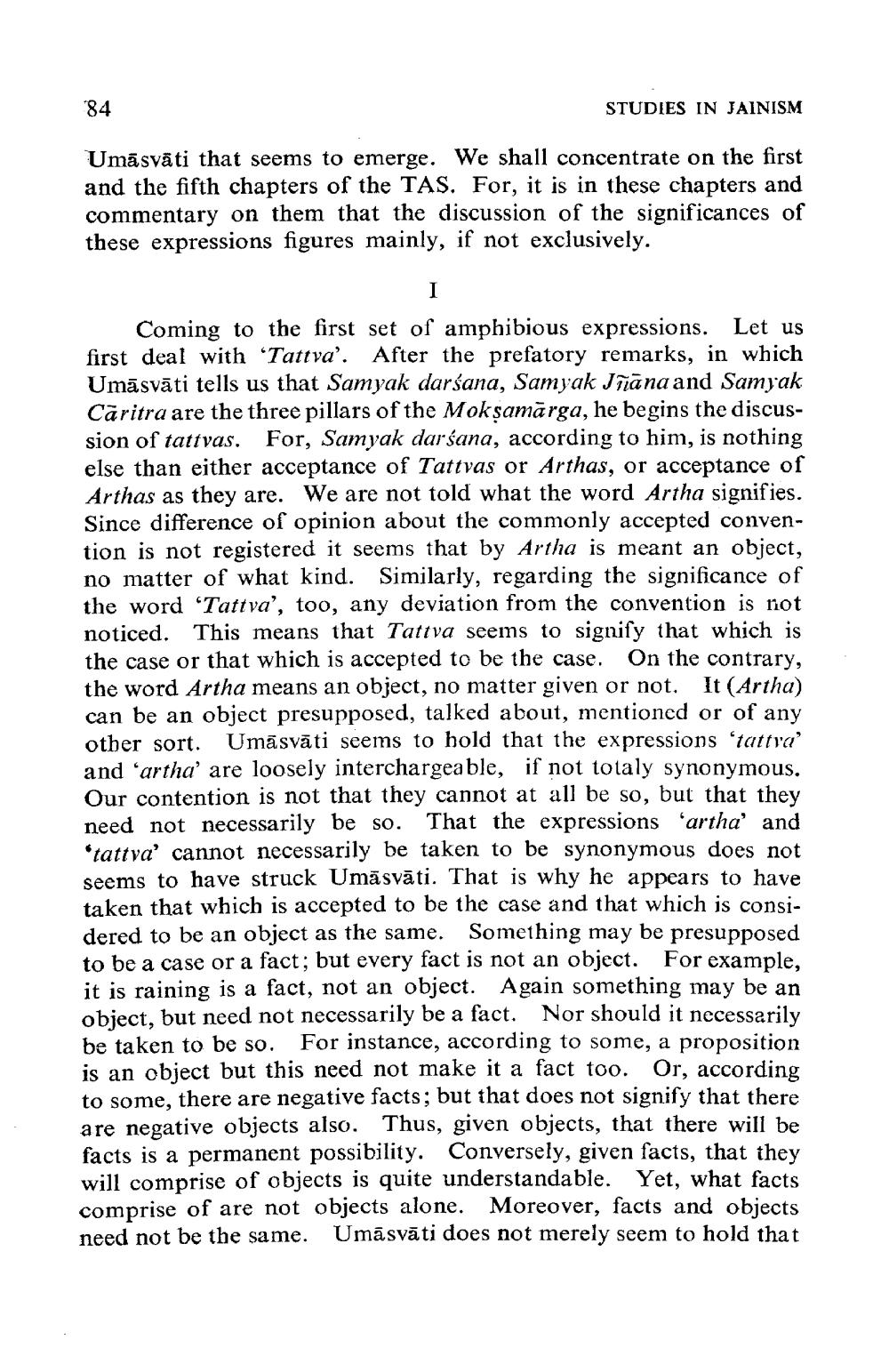________________
84
STUDIES IN JAINISM
Umāsvāti that seems to emerge. We shall concentrate on the first and the fifth chapters of the TAŞ. For, it is in these chapters and commentary on them that the discussion of the significances of these expressions figures mainly, if not exclusively.
Coming to the first set of amphibious expressions. Let us first deal with "Tattva'. After the prefatory remarks, in which Umāsvāti tells us that Samyak darśana, Samyak Jījāna and Samyak Caritra are the three pillars of the Mok samārga, he begins the discussion of tattvas. For, Samyak darśana, according to him, is nothing else than either acceptance of Tattvas or Arthas, or acceptance of Arthas as they are. We are not told what the word Artha signifies. Since difference of opinion about the commonly accepted convention is not registered it seems that by Artha is meant an object, no matter of what kind. Similarly, regarding the significance of the word "Tattva', too, any deviation from the convention noticed. This means that Tattva seems to signify that which is the case or that which is accepted to be the case. On the contrary, the word Artha means an object, no matter given or not. It (Artha) can be an object presupposed, talked about, mentioned or of any other sort. Umāsvāti seems to hold that the expressions 'tattra' and 'artha' are loosely interchargeable, if not totaly synonymous. Our contention is not that they cannot at all be so, but that they need not necessarily be so. That the expressions artha' and
tattya' cannot necessarily be taken to be synonymous does not seems to have struck Umāsvāti. That is why he appears to have taken that which is accepted to be the case and that which is considered to be an object as the same. Something may be presupposed to be a case or a fact; but every fact is not an object. For example, it is raining is a fact, not an object. Again something may be an object, but need not necessarily be a fact. Nor should it necessarily be taken to be so. For instance, according to some, a proposition is an object but this need not make it a fact too. Or, according to some, there are negative facts; but that does not signify that there are negative objects also. Thus, given objects, that there will be facts is a permanent possibility. Conversely, given facts, that they will comprise of objects is quite understandable. Yet, what facts comprise of are not objects alone. Moreover, facts and objects need not be the same. Umāsvāti does not merely seem to hold that




